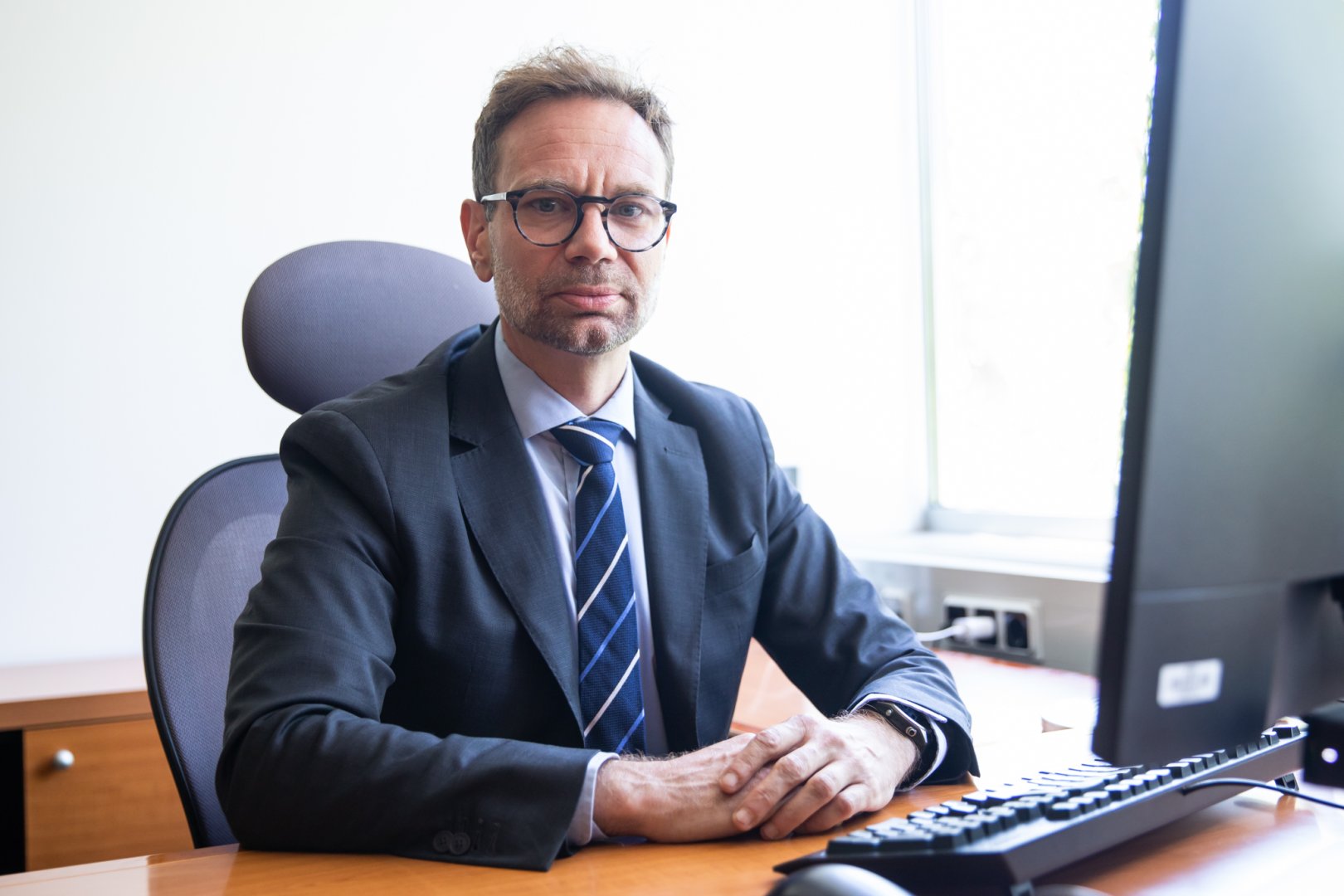BAKU, Azerbaijan, November 21. As part of COP29 in Baku, Trend News Agency proudly presents COP for Hope, a special project offering an unparalleled platform to hear from world leaders and trailblazers in politics, economics, science, and ecology, all united by a shared commitment to addressing today’s pressing climate challenges.
Today, we are honored to speak with Uroš Vajgl and Tina Seršen, state secretaries at the Ministry of the Environment, Climate and Energy of Slovenia.
In an exclusive interview with Trend on the sidelines of COP29, Vajgl noted that Slovenia is actively engaged on the negotiation side as well as climate action agenda and political initiatives.
"Climate finance is the focus of this year’s COP. Moreover, for us it is especially important that in Baku we will reach balanced negotiated outcome which ensures ambitious mitigation measures and implementation of full GST decision from last year. Regarding political initiatives, I would like to underline the importance of the goal to triple renewables as well as nuclear infrastructure. We believe political initiatives are important because they provide additional momentum for accelerated climate action. Therefore, for the moment, this year we plan to join Global Energy storage and grids pledge as well as initiative on human development for climate resilience. We are also actively supporting youth participation and inclusion of civility society at COP," said the state secretary.
Slovenia's priorities during COP29
"We are aware that we are currently not on track to limit global warming to 1.5°C. While this year’s COP will focus on financing, we must not neglect mitigation efforts, and we should emphasize the preparation of new Nationally Determined Contributions (NDCs). We must continue with the implementation of last year’s commitment of transitioning away from fossil fuels in the energy sector and phase down of coal use overall. This momentum, built during last year’s COP in Dubai, needs to be sustained. In our efforts to achieve climate goals and climate neutrality, it is crucial to ensure a just transition. Therefore, we must integrate a human rights-based approach and the principle of gender equality into climate action planning. The successful transition also depends on the use of nature-based solutions. For achieving climate resilience, comprehensive and nature-based water management is also of key importance," said Vajgl.
Ensuring effective climate financing for developing countries at COP29
The state secretary believes that in Baku it is necessary to deliver on the new collective financial goal which will help developing countries, among them the least developed, to implement their future climate policies and measure.
"Slovenia has been demonstrating its commitment to climate finance, exemplified by, amongst others, its pledge of €1.5 million to the Loss and Damage Fund. As one of the smallest country-sized donors, this commitment serves as a significant signal within the complex multilateral landscape. The New Collective Quantified Goal (NCQG) must be both ambitious and achievable, aligning with the urgent need for a global transformation toward net-zero and climate-resilient economies. We envision a goal that is multifaceted in its structure. The NCQG should build upon a wider range of sources and contributions, including an expanded group of donor countries, in recognition of the evolving economic capabilities and significant emissions of various nations," he said.
Vajgl believes that complementary actions should enhance investment-friendly environments, promote greater climate ambition, and stimulate private investment and domestic resource mobilization across all countries.
"Multilateral Development Banks (MDBs) must engage in deeper collaboration to improve co-financing and financing accessibility for countries. In this context, further reforms in the international financial architecture are crucial to expand MDB lending capacity, encourage more private investments, and tackle the challenges of climate change more effectively," he concluded.
Enhancing cooperation in renewable energy
State Secretary Tina Seršen, for her part, noted that Slovenia is Europe's largest manufacturer of solar panels per capita and one of the largest European suppliers of water turbines.

"Both Slovenian suppliers together with many other smaller suppliers of different services and goods from the field of renewable energy, are offering their know-how, services, and support with implementation of renewable energy in a nature-friendly way. Slovenia would be grateful if Azerbaijan brings to attention their planned renewable projects and welcomes every initiative for future cooperation of both countries in the renewables sector," she added.
Follow the author on X: @Lyaman_Zeyn







